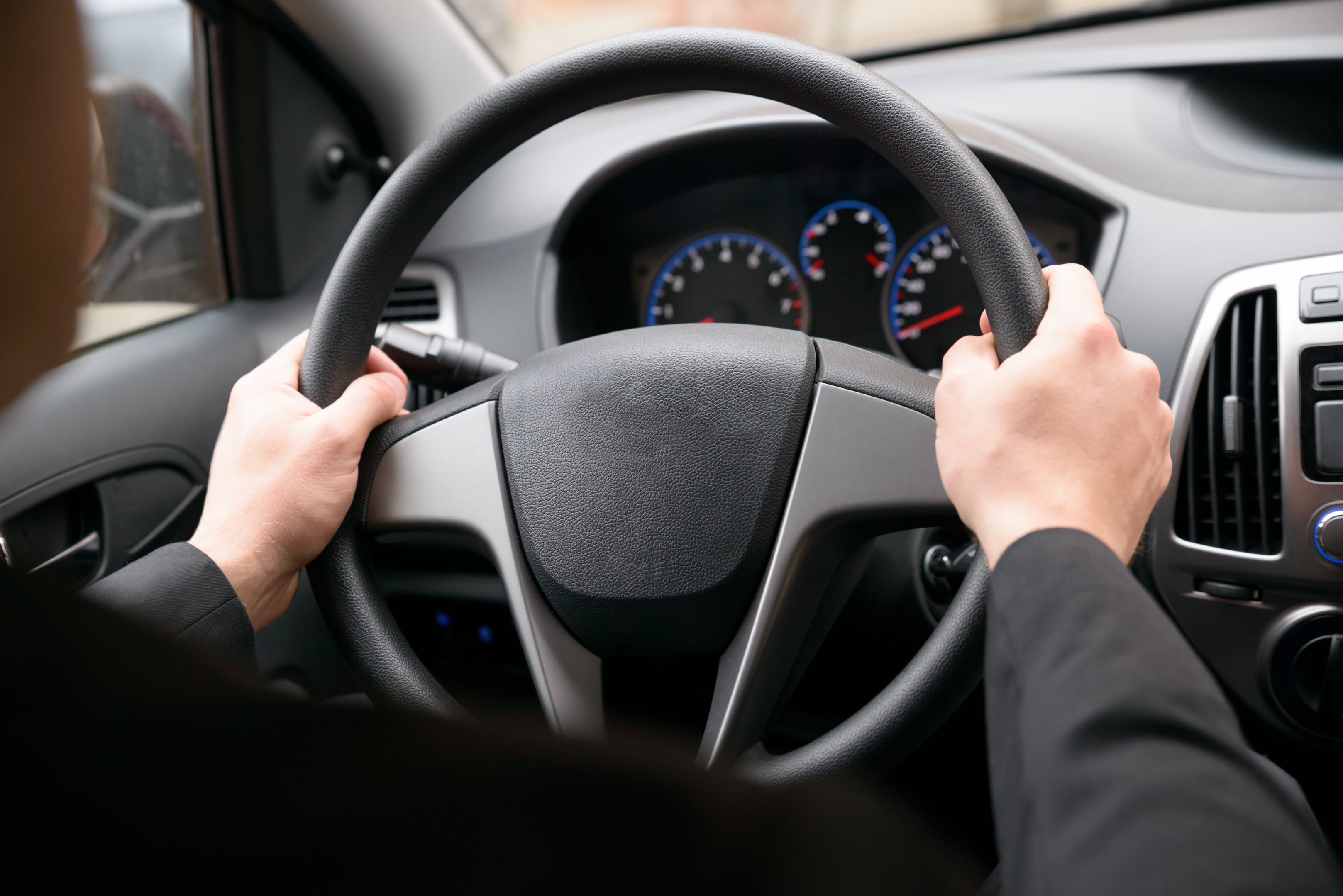
Are you noticing your car shaking when you drive? This can be a worrisome experience, and it is important to find out the cause of the problem as soon as possible.
There are many potential causes of car shaking, including:
Tire problems
Brake issues
Unbalanced wheels
Worn suspension components
Loose or damaged components and more.
Steering wheel issues
In this article we will explore some common causes behind why your car may be shaking while driving.
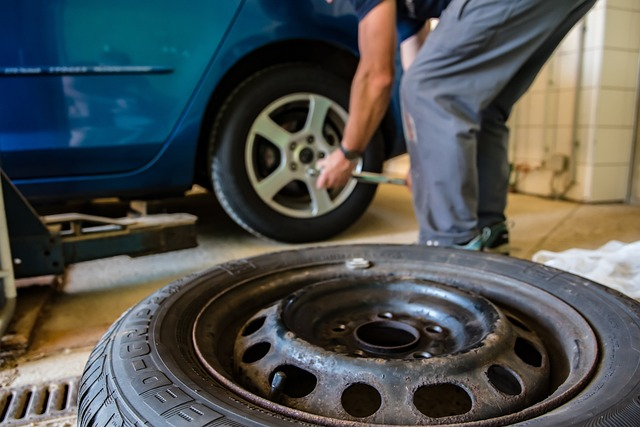
Tire Problems
Tire problems could be causing your vehicle to vibrate while you’re cruising down the road. Many of these issues involve the treads, inflation, or rotation of your tires. If any one of these is off balance, it can cause vibrations and discomfort to your ride.
Inflated tires are a common issue and should be checked regularly with a pressure gauge. If the tires are over-inflated, they can cause an uncomfortable bounce and shake when driving on rough surfaces. On the other hand, if they are under-inflated, they will create extra drag, resulting in more vibration than is necessary. Keeping your tires properly inflated is key for smooth driving conditions.
Worn treads can also lead to vibration while driving due to poor traction on the road surface. Not only that, but uneven wear between different parts of the tire can have a similar effect as well. This could be caused by poor rotation or unequal pressure being applied to certain areas of the tire when cornering or otherwise turning sharply at high speed.

Brake Issues & Worn Brake Calipers
If you’re experiencing a shaking sensation while operating your vehicle, it’s possible that brake issues may be the underlying cause. Faulty brakes can be caused by a variety of things.
One common issue is an insufficient amount of brake fluid within the system. If there’s not enough brake fluid, it can lead to air bubbles forming in the lines and will result in a spongy feeling when you press down on the pedal, as well as vibration when braking.
Having worn out or improperly adjusted drum or disk brakes can also cause your car to shake when driving. Drum brakes have two curved pieces of metal that press together to stop the car and if these become warped, they won’t make contact with each other properly causing vibrations. Disk brakes work off of pads which are responsible for pressing against the rotor when you step on your brake pedal to slow down your vehicle; if these pads are worn down too much they won’t provide enough friction and could cause shaking during braking.
Car Vibrating can be caused by Faulty Brake Rotors
It’s important to check for any visible signs of damage on both drum and disk brakes before performing any maintenance work; this includes ensuring that all components are securely fastened in place and visually inspecting for warping or cracks in either type of brake system.
Damaged or faulty brake rotors can also cause your vehicle to vibrate. When brake rotor is damaged or faulty it can have a massive impact on your vehicles ride and braking power. The reason why this happens is because rotors get pressed down on by brake pads to slow your vehicle down when pressing on the brake pedal. When one or more rotors are out of balance, you will feel vibrating tremors throughout the vehicle and in your steering wheel.

Unbalanced Wheels & Faulty Wheel Bearings
When vibration occurs, it can be cause by a tire imbalance in your wheels, this can lead to a jarring ride, and make you feel out of control and unsafe when behind the wheel. This problem is common in older cars, but can also occur in newer models. Generally speaking, it’s caused by uneven treads, worn bearings, misaligned tires, improper inflation, or bad shocks. If you have a vibrating car, it is important to check the tire balance, and make sure you do not have a defective tire.
Uneven treads are the most common cause of an unbalanced wheel. Over time, the tread on your tires will wear down from use and age which can lead to an imbalance in weight distribution across all four corners of your vehicle. This will result in shaking during normal driving conditions as well as increased vibrations at higher speeds.
Worn bearings are another possible culprit when it comes to unbalanced wheels. Bearings play a key role in ensuring that your wheels spin consistently without any wobble or shake. Over time, they may become worn and need replacing to restore balance to your car’s suspension system. It is also important to check for loose lug nuts, motor mounts, and regularly get your vehicle’s alignment checked a well.
Uneven tire wear could be the cause of your vehicle vibration.
In addition, misaligned tires can create an imbalance due to incorrect tire pressure or alignment angles resulting in harsh steering movements and increased road vibration at higher speeds.
Improper inflation and bad shocks are additional causes for unbalanced wheels on a car – both can lead to excessive bouncing during acceleration or braking. Some vehicles may experience more severe issues than others depending on the severity of their condition. Both problems should be addressed promptly by a qualified mechanic as they could potentially cause further damage if left unattended for too long.
All of these factors combined make up what’s known as an ‘unbalanced wheel’ issue. So, if you’re noticing any kind of shaking while driving, then it’s important that you have it checked out right away!
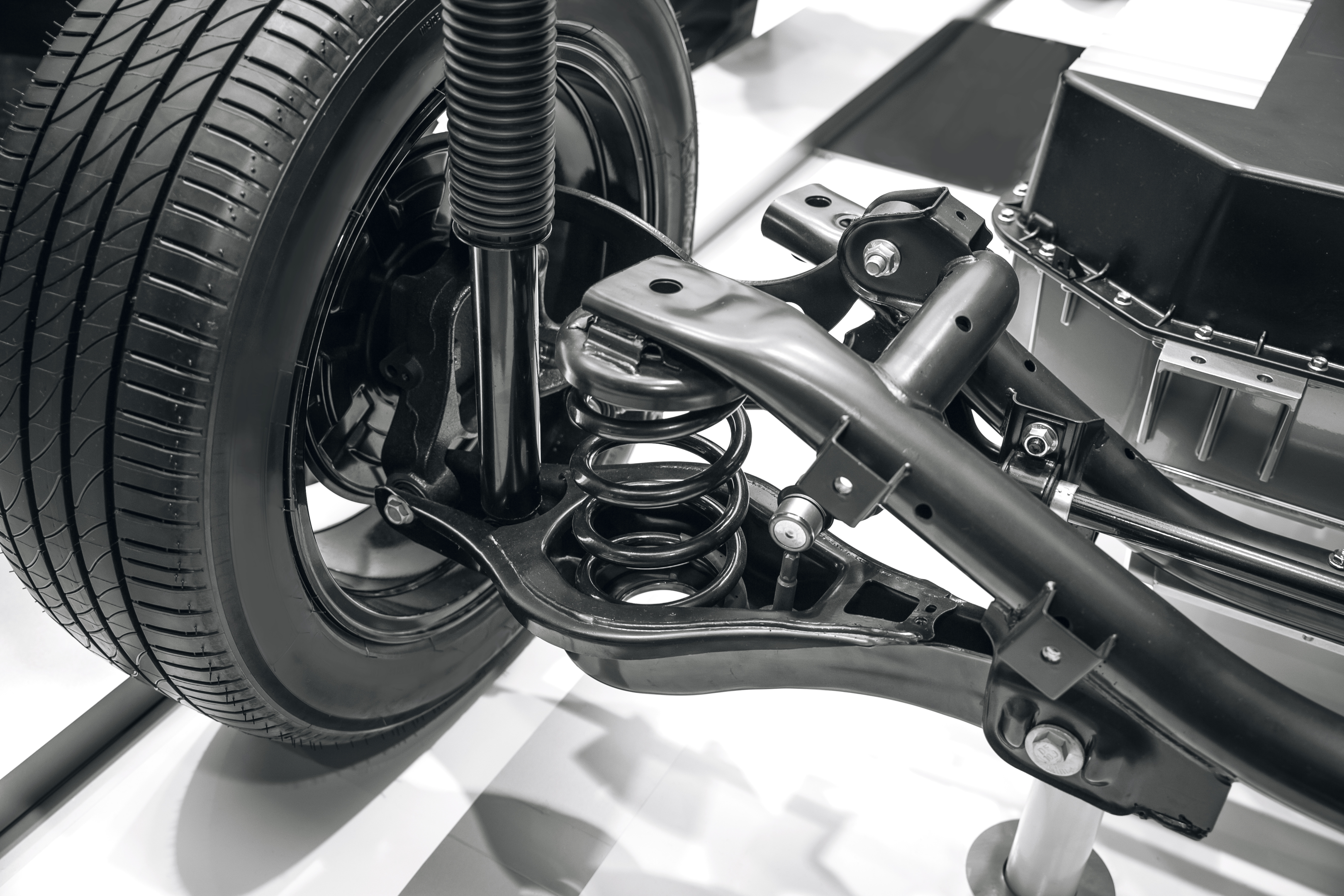
Worn Suspension Components
You may experience a rougher ride if your suspension components are worn, so it’s wise to have them inspected regularly.
Worn suspension components can cause a car to shake when driving. These components include worn bushings, faulty shocks, cracked springs, ball joints, loose struts, and bad shocks.
Worn bushings occur when the rubber between certain parts of your vehicle’s frame and axle becomes brittle or breaks down due to age or prolonged exposure to extreme temperatures.
Faulty shocks are caused by incorrect installation or damage from potholes and other road hazards.
Cracked springs happen when they’ve been exposed to too much weight over time – usually from hauling heavy cargo or carrying more passengers than the vehicle was designed for.
Loose struts happen when the upper mounting bolts become loose due to wear and tear on the strut body.
Finally, bad shocks often result from oil leakage which decreases their ability to absorb bumps in the road surface as well as reduce overall stability while driving.
It’s important to check your suspension components regularly for signs of wear and tear. This allows you to identify any problems early before they start causing damage to other parts of your car such as tires or steering systems.
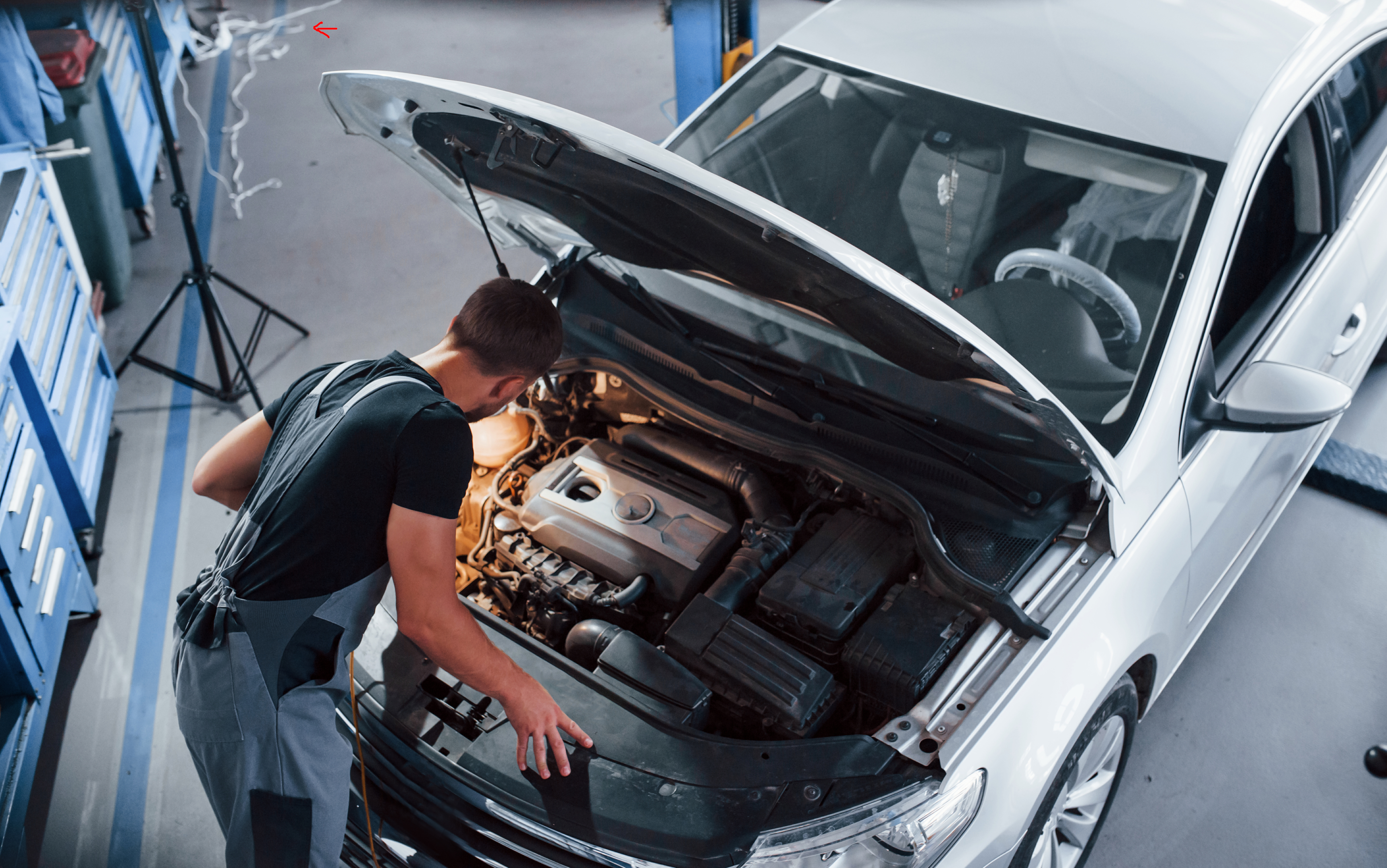
Loose or Damaged Components
Unchecked, loose or damaged suspension components can lead to an unreliable and uncomfortable ride.
A worn spark plug, a faulty spark plug, a broken fan belt, a faulty alternator, and/or a dirty air filter can all be major contributors to car shaking when driving.
Worn spark plugs can cause the engine to misfire by not igniting the fuel-air mixture properly in your combustion chamber. Faulty spark plugs may have insufficient voltage running through them or they may be clogged due to dirt buildup.
A broken fan belt is an often overlooked problem that can cause car shaking at higher speeds – this is because the fan belt keeps certain parts of the engine cool during operation and without one, it will overheat quickly.
Faulty alternators are also another potential source of car shaking when driving as they provide power from your battery needed for various electrical functions like headlights and power steering.
Finally, dirty air filters can also lead to car shaking as their purpose is to clean out contaminants from the air entering into your engine; if these become clogged then not enough air will enter into your engine causing it to shake excessively while you drive.
In order for your vehicle’s suspension system to work properly, it’s important that all components are regularly checked and maintained so any potential issues such as those listed above do not arise while on the road. Whether the issue ranges from loose engine mounts to a bent axle, anytime your vehicle vibrates it is essential to get the vehicle inspected by a professional.
Click here for another article on the top five reasons for excessive car shake.
Exhaust System Issues
Your exhaust system is essential for a smooth, safe ride, so make sure to have it regularly checked and maintained.
Exhaust blockage, faulty gaskets, leaking pipes, muffler damage, and faulty catalytic converter are all possible causes of an issue in your car’s exhaust system. When any of these components become blocked or damaged it can cause your car to shake when you drive.
It’s important to check for signs of leaks or blockages in the exhaust system as soon as you notice them. The most common symptom that something is wrong with the exhaust system is loud noises coming from the tailpipe or engine area.
Fuel System Problems
Another potential reason why your car is shaking when you drive is related to fuel system problems. You may be having issues with contaminated fuel, a faulty fuel pump, a clogged filter, dirty injectors, or low pressure in the fuel system. All of these can cause your car to shake and should not be taken lightly as they are serious issues that need to be addressed immediately.
Contaminated fuel can cause your engine to misfire and vibrate more than normal due to its inability to ignite properly. If you suspect contaminated fuel as the culprit for your car’s shaking, it’s important that you get it checked by a professional mechanic as soon as possible.
If left untreated, this issue could lead to further problems with the engine such as power loss or increased emissions. A faulty fuel pump can also lead to vibrations while driving due to an inconsistent flow of gas reaching the engine. This issue can typically be identified by checking if there’s any noise coming from under the hood while you’re driving or if there are any signs of leaks near the tank area.
Click here to learn more about how a faulty fuel system can cause car shakes.
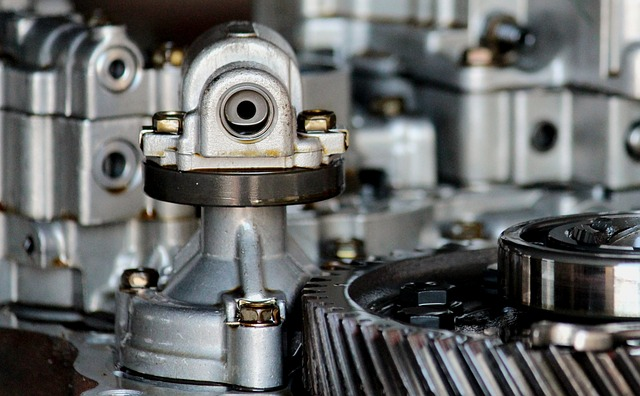
Transmission Issues
If you’re noticing a rough ride due to your car shaking while driving, it could be an issue with the transmission. Transmission problems can range from minor issues like clogged filters, low transmission fluid levels, or worn belts to serious problems such as faulty sensors or an overheating engine.
If your car is shaking when driving at low speeds, you should check for clogged filters, worn belts, faulty sensors, and damaged spark plugs.
Issues with the transmission can cause damage to other components of the engine if left unchecked. It’s important to inspect and listen for any abnormal sounds coming from the transmission area when your car is running or if you feel it start shaking. If these sounds are present, it could indicate a problem with one of the components in the system. Other signs include difficulty shifting gears, slippage between gears, and excessive vibration when idling.
Engine Problems
Experiencing performance issues with your vehicle can often be attributed to engine problems. If your car is shaking while you drive, it’s possible that the source of this issue lies within the engine. The following table provides a brief overview of some common engine components and their function:
It is advised that you get professional opinion about any sort of repair work required – especially when it involves anything related to an internal component like those listed above – so that you avoid bigger problems down the road.
Poor Wheel Alignment
The most common reasons for a shaking car is poor wheel alignment can cause your vehicle to pull or drift in one direction, leading to unsafe driving conditions. Uneven terrain, bad roads, worn roads, and other irregularities can all contribute to poor wheel alignment.
Unlevel pavement or potholes
Poorly maintained road surfaces
Worn-out tires from over-use or age
Faulty suspension components due to wear and tear over time
These issues can lead to misalignment of your car’s wheels. If left unresolved, the problem will continue until it becomes more pronounced. As a result, you may experience difficulty steering the car in straight lines and will have difficulty keeping the car centered while driving on uneven surfaces. This could cause you to lose control of the vehicle if you’re not careful.
Frequently Asked Questions
How do I know which wheel is unbalanced?
When it comes to diagnosing why your car is shaking when you drive, the first place to look is at the wheels.
You can determine if a wheel is unbalanced by performing a wheel alignment and tire balancing, as well as tire rotation and checking the shock absorbers and strut mounts.
A professional mechanic can help you here; they’ll inspect your vehicle’s suspension system to make sure everything is in good working order, then use specialized equipment to accurately measure any irregularities in the tires or wheels.
If they find an issue with one of these components, they’ll be able to provide you with a solution that addresses the underlying problem.
What kind of damage can a loose component cause?
When a component in your car is loose, it can cause major damage to your vehicle.
Diagnostic testing can help you determine if the issue is a worn brake, engine misfire, faulty wiring or tire vibration.
These problems can lead to further issues like loss of traction and control, difficulty stopping the car and increased wear on other essential components.
Additionally, these issues could be indicative of larger mechanical problems that may require more extensive repairs.
How can I tell if my car’s suspension is worn?
If you think your car’s suspension might be worn, there are several ways to check.
Start by having a mechanic check the alignment of your vehicle; this will tell you if the tires are pointing in the right direction and that they can make contact with the road properly.
You should also have them test the shocks or struts for proper function, as well as inspect any bushings that could be wearing out.
Additionally, it’s good practice to have a tire rotation done every 6 months or so, and make sure to get a tune-up on your engine regularly.
Taking these steps can help you determine whether or not your car’s suspension is worn out.
Is it normal for my car to shake when I drive?
When driving, it’s normal to experience some engine vibration in your car.
However, if you feel a shaking or shuddering when accelerating or braking, this could be the result of misaligned tires, worn brake pads, or an issue with your steering system.
To diagnose and resolve these issues, it’s best to have a professional check your tire alignment and wheel alignment as well as inspect the condition of your brake pads.
Taking care of these elements will help ensure that your car runs smoothly and safely on the road.
Conclusion
You may have noticed your car shaking when you drive, and it can be concerning.
To ensure that your car runs smoothly and safely again, take it to a qualified mechanic who can diagnose the issue and provide you with the best possible solution. Don’t forget to get a wheel alignment too – this’ll help make sure your car stays stable on the road for years to come!


